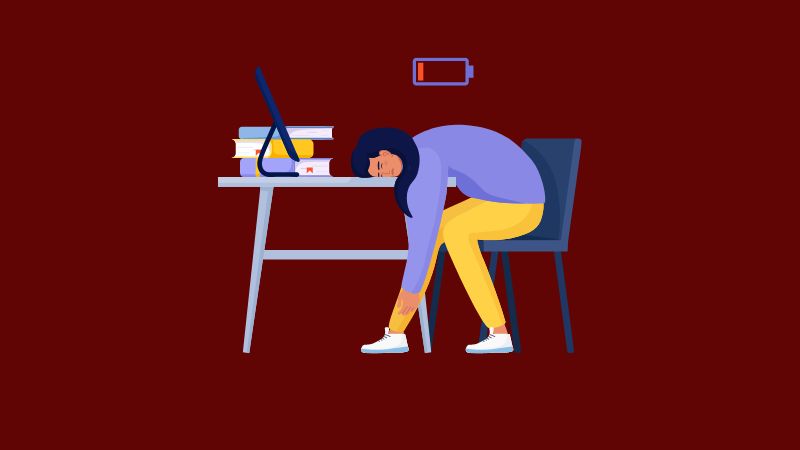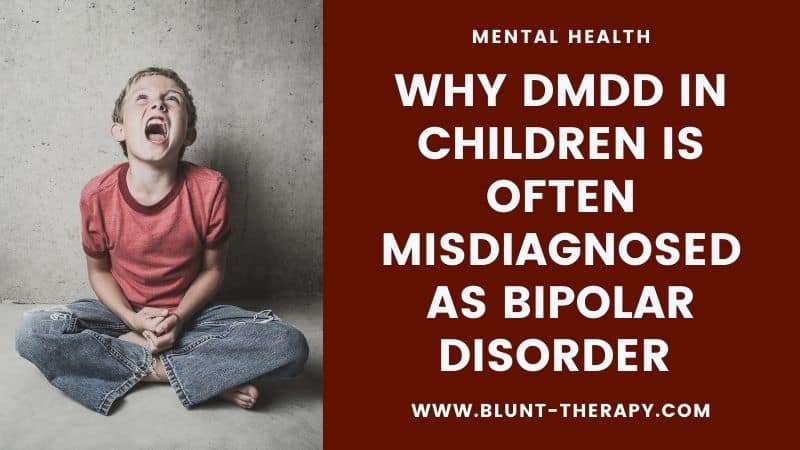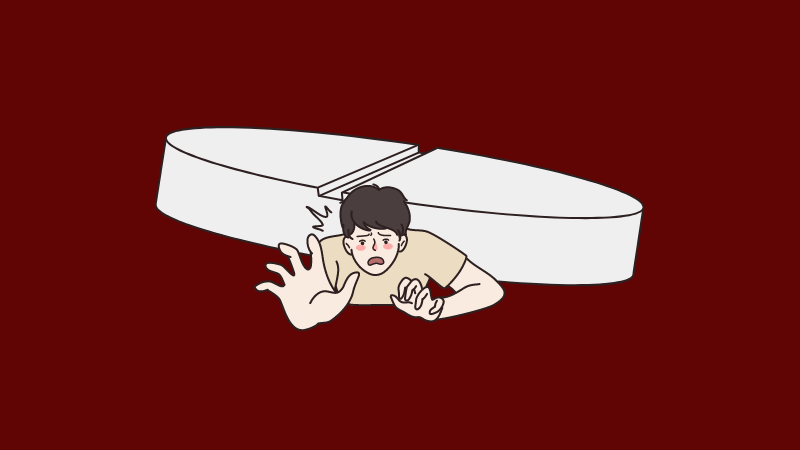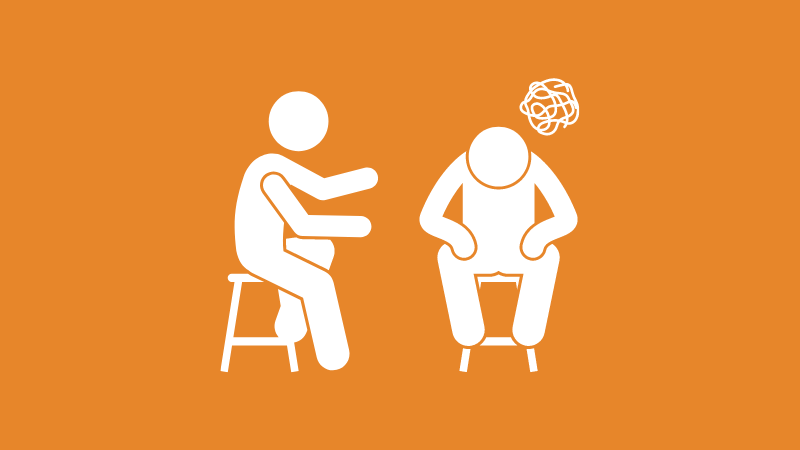Table of Contents
Affiliate link notice: As an affiliate of BetterHelp and other third-party vendors, We will receive compensation if you make a purchase using the links provided on this page. For more information, visit our disclosure page.
Last Updated on December 7, 2021 by Randy Withers, LCMHC
Even the best parents make mistakes from time to time. It’s a hard job and most parents are just trying to do the next right thing.
But toxic parenting deserves to be called out because of the havoc it wreaks.
There are dozens of toxic parenting behaviors that need to be called out for what they are. This post is about five particularly nasty ones I witnessed during my time as a family therapist.

What Is Toxic Parenting?
The term “toxic parenting” refers to a pattern of abusive, irresponsible, and/or self-centered behaviors that threaten the mental health and general welfare of their children. As with anything, the distinction between poor parenting and toxic parenting is a matter of degree. Some toxic parenting behaviors are far more damaging than others.
While there are dozens of examples to choose from, I am limiting the scope of this post to specific behaviors I observed during my time as a family therapist. These are egregious examples and they deserve to be called out for what they are.
What follows is a fairly common example that I witnessed first-hand. I have changed the names and other details to protect confidentiality. The salient points remain.
A few years ago, I did family therapy with a husband and wife who hated each other. “Frank” and “Janet” had a 9-year-old daughter and a 3-year-old son. They had a bad habit of screaming at one another in front of them. She’d call him a “mother—-ing coward” and he’d call her a “psycho c—.”
At home, there was neither consistency nor structure, two things that are crucial in a home with young children. Their son threw epic tantrums, the frequency and duration of which were alarming even for a toddler. Their daughter was defiant and disrespectful.
I confronted Frank and Janet during one session about their arguments. The kids were sitting on the floor, playing games on their tablets. I was saying to them that children are always listening, even if it doesn’t seem like they are.
“Children learn how to communicate from their parents,” I told them. “What kind of message do you think they receive when all they see is you two fighting?”
Janet was incredulous. “That’s ridiculous!” she blurted out, shooting a coarse look at Frank. “We hardly ever argue in front of them!”
The three-year-old looked up as if on cue. “You do too!” he shouted.
Hope my mom and I hope my dad
Everclear
Will figure out why they get so mad
Hear them scream, I hear them fight
Say bad words that make me want to cry
How Toxic Parenting Affects Children
The effects of toxic parenting on children are difficult to exaggerate.
Studies show that adult children of toxic parents often struggle with depression, anxiety, low self-esteem, difficulty forming relationships, and distorted thinking.
In childhood, behavioral and emotional problems are by far the most common result of toxic parenting. These symptoms, according to Family Systems Theory, are a direct reflection of the dysfunctional family unit. Kids who struggle with these issues are often referred to as “symptom bearers.”
In the case of Frank and Janet, the son’s tantrums and the daughter’s defiance mirrored the conflict between their mom and dad.
If a person is arithmetic, a family is calculus. Each member has their own strengths, their own struggles, their own point of view. They have their own personalities, fears, and hopes. Each member also has a unique relationship with every other member, too. In a family of six, there are literally dozens of distinct relationships.
When it comes to family, everything is connected. If Mom and Dad scream at one another in front of the kids, you can bet that it relates to Billy’s problems at school. If Billy is defiant, you can bet it relates to Mom and Dad’s toxic parenting. And all this stuff is affecting little Susie as well, who is wetting the bed because everyone is fighting and she is scared.
“Childhood trauma does not come in one single package.”
Asa Don Brown
5 Toxic Parenting Behaviors That Should Be Illegal
The problem is the toxic parenting styles, not the kids. The problem is parents who focus only on the child’s misdeeds and not their own shortcomings. They don’t stop to consider they might be the cause of it all.
In every dysfunctional family, you’ll see the same toxic behaviors and traits. Just one of them alone is enough to cause severe problems.
Unfortunately, these behaviors tend to come as a package deal.

1. Toxic parents never accept responsibility.
Have you ever met a person who was never, ever at fault? No matter the circumstance, they are the victim. It was the other person who started it. It was the other person who was wrong.
People like this are experts in blame-shifting and denial. You will never hear them admit fault.
Good parents always make a point of modeling positive behaviors, even if it means admitting they were wrong. An adult always takes responsibility for their actions.
How can we expect our children to accept consequences if we don’t apply that same standard to ourselves?
This is an issue that is far more impactful than saying you’re sorry. Parents who never accept responsibility are also the ones who undermine disciplinary measures at school.
Their toxic parenting styles make the entire family sick. They make up excuses. They justify bad behaviors. Ever seen a parent arguing with a school principal? My so and so would never do such a thing, they say.
“On top of the abuse and neglect, denial heaps more hurt upon the child by requiring the child to alienate herself from reality and her own experience. In troubled families, abuse and neglect are permitted; it’s the talking about them that is forbidden.”
Marcia Sirota
2. Toxic parents keep secrets.
Here’s a situation that happens more than you might think. A few years ago, Uncle Ted molested Mom and Dad’s oldest daughter. She was 13 at the time. She’s 15 now — grades are slipping, she’s growing more and more defiant, she’s dabbling in drugs and having sex at school.
The thing is, Uncle Ted is still a regular in the home, because Ted is Dad’s brother, and he’s a good man, so the family just pretends it never happened.
The 15-year-old starts acting out because her parents betrayed her and she doesn’t feel safe anymore. And it’s going to get worse, because now Uncle Ted has his eyes on the youngest daughter, and she’s only 6.
And the cycle will repeat because that is what families like this do. Incest tends to get passed down from one generation to another.
Could you imagine letting a sex offender near your child? Probably not. But it happens all the time.
Family members are, without question, the ones who are most likely to perpetrate.
Toxic parents often fail to accept reality. To acknowledge there is a problem — such as a case with Uncle Ted — is to admit there is actually a problem.
Instead, the secret keepers keep quiet and they forbid their children to talk about it, as if silence erases trauma. And when the kids start to act out or engage in self-harm, the parents fail to connect the dots and they chalk it up to a phase, or bad behavior, or the school systems, or their peers.
No insight. No responsibility. No actual parenting.
Secrets can destroy. If you’ve grown up in a family of secret-keepers, you know exactly what I’m talking about.
“The shared secret and the shared denial are the most horrible aspects of incest.”
John Bradshaw
3. Toxic parents argue. All the time. About everything.
If you grow up in a family full of arguers, you think it’s normal.
It isn’t.
Plenty of parents argue, which is not inherently problematic. The problem comes when the parents do not have the presence of mind to argue away from their children.
In toxic families, this is always a major issue. If you are 8-years-old, and your parents are always screaming at one another, how are you supposed to learn healthy communication?
The kids end up arguing as much with the adults as they argue with themselves, and the adults end up arguing with the children as if that is somehow an effective use of their time.
Have adult conversations in private. Arguing in front of children is both mentally and verbally abusive and sends a terrible signal about how they should handle conflict.
“If mental abuse was a punishable crime, a lot of parents would be in jail serving a long term.”
Maddy Malhotra

4. Toxic parents treat children like adults.
Firm boundaries are a critical feature of healthy families. One of these boundaries is a concept called “Role Performance.” In the most basic terms, adults are supposed to act like adults and children are supposed to act like children.
In dysfunctional families, roles get blurred.
In toxic families, parents tend to expose their children to things that are not appropriate for their age. I worked with a 9-year-old once who was in charge of paying bills and a 45-year-old mother who had to get permission from her 11-year-old son before going on dates.
Frequently, children of divorced parents find themselves relaying messages or brokering deals. These are all examples of things that children have no business doing.
To the casual observer, “mature” children seem ideal.
However, when parents require children to perform adult duties, they inevitably fall victim to anxiety and distress because they lack the skills, wisdom, and emotional stability to deal with the stress.
Adults who get overwhelmed with stress tend to have relatively sophisticated coping skills. They may vent to a colleague or call a friend or go to the gym. Kids, having no idea how to manage stress, tend to act out.
Invariably, children with behavioral disorders such as Conduct Disorder are responding to the stresses of age-inappropriate roles and responsibilities.
It’s fine to assign tasks to children, provided they are developmentally appropriate. Adolescents can and should be expected to clean up after themselves and keep their rooms tidy. Teenagers can and should be expected to complete homework assignments, do yard work, and provided limited supervision for younger children. Even toddlers can be assigned basic chores.
But having an adolescent approve who you date or be responsible for paying bills? No, no, no. That’s a great example of toxic parenting.
Perhaps nothing so accurately characterizes dysfunctional families as denial.”
John Bradshaw

5. Toxic parents are emotionally abusive.
Abuse comes in lots of forms — physical, sexual, emotional, and verbal.
The most common one I see is emotional abuse. Experience has taught me that DSS will intervene if you hit your kids, but parents can be emotionally abusive with impunity.
Maybe it’s because physical and sexual abuse are crimes and emotional abuse is not. It may be because emotional abuse is difficult to prove. It may also be that, just like everyone else in the mental health field, DSS is overworked, underpaid, and outnumbered.
Emotional abuse is toxic and dangerous, but it often does not look like typical abuse. Here are some examples.
- If you use drugs in front of your children, or watch pornography, or engage in illegal activities, that is emotional abuse.
- If you have small children and you involve them in adult issues such as finances and bills and legal troubles — that is emotional abuse.
- If you and your spouse fight with one another in front of your kids using fists or words or both — that is emotional abuse.
- If you threaten to kick your kids out of your home, that is emotional abuse.
- If you withhold love from your children because you are too self-absorbed to spend time with them — that is emotional abuse.
- And if you blame it all on them — that is abuse, too.
“Childhood should be carefree, playing in the sun; not living a nightmare in the darkness of the soul.”
Dave Pelzer
Final Thoughts
Children can suffer from all sorts of different mental health issues, from mild depression and anxiety all the way up to acute psychosis.
Adults, of course, can suffer from these problems as well. The difference is that a child’s mental health problems are almost always a reflection of the dysfunction in which they live. They don’t have a say in the matter.
To treat a child, you must first treat the dysfunctional family system. Until that happens, nothing will change.
If you were the victim of toxic parenting, I recommend you see a mental health professional to work through any lingering issues you may still have. Depression, for example, is a common by-product of toxic parenting. If you’re not sure if depression affects you, BetterHelp has a free depression quiz you can take. Give it a try.
Were you a victim of toxic parenting? Leave a comment and share your experience.
References
- Poisonous Parenting: Toxic Relationships Between Parents and Their Adult Children
- 10 toxic behaviors of parents that make children less functional in adulthood
- Systems Theory and Family Therapy
- Cost of Growing up in a Dysfunctional Family
A version of this article originally appeared in “The Mission” on Medium.com.









Good article and right to the point
Great post!
Thanks!
Great article. Thanks for sharing!
Good job,Randy!Even I can understand this article!!Thankyou!
Thanks for your feedback!
Thank you! I was wondering if it was all in my head. I just need to find a way out to be free. Sadly, it will take a while…
You are welcome! Of course, I don’t know for sure, but I doubt it’s all in your head. Unfortunately, toxic parenting is fairly common.
how would i confront a toxic parent or how would i be able to get out of the household without freaking the parent out… i need an escape I’m mentally tired of living in this place and i don’t know how to get out fast enough
Hi Ava – often we need a counselor to process things like this with. Suggestions depend on a number of factors, not the least of which is whether you are an adult or a child. I would encourage you to reach out to a therapist in your area.
Is it still emotional abuse if parents withhold love from their children 18 or up? Because it’s breaking my soul and crushing it to death when they don’t love me back anymore 😭
Hello and thank you for your question. Abuse is not restricted to a certain age, so it is certainly possible. Best to reach out to a professional in your area with whom you can process and explore what you are dealing with.